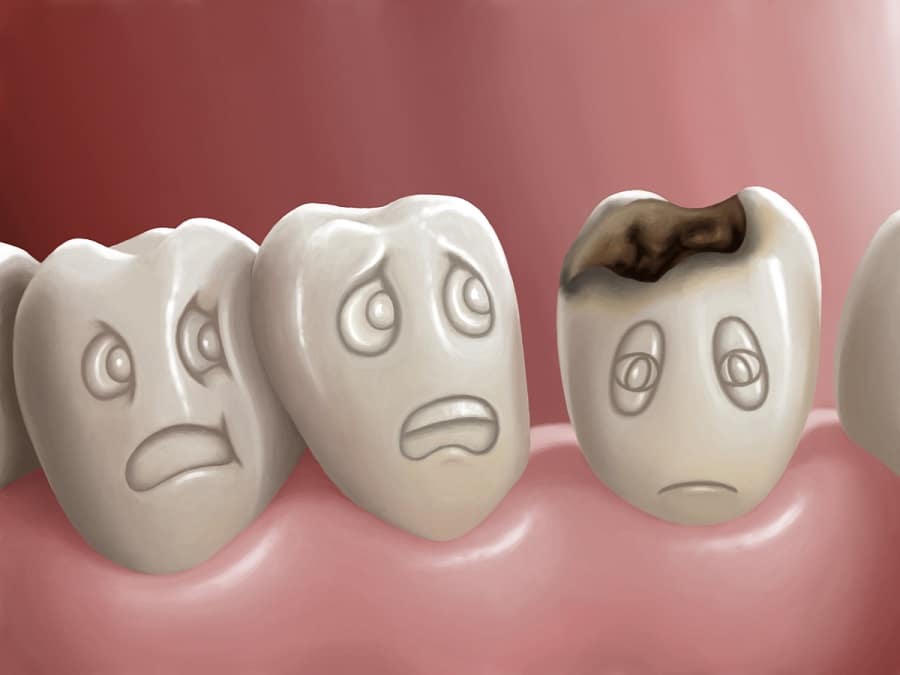Establishing and maintaining good health is often about finding balance. It’s easy to assume that if one always consumes healthy, nutritious foods and never consumes unhealthy foods, one will be healthy. That said, even our doctors will usually admit that a small amount of “treats” on an occasional basis is acceptable and won’t have extensive, harmful effects on our health. But before you run out and stock up on your favorite sweets, it’s important to understand exactly how they can harm your teeth, and what you can do to prevent this harm from occurring.
Sugar and Your Teeth
Your mouth contains bacteria as part of its natural, healthy state. The presence of this oral bacteria does not automatically threaten the strength or function of your tooth enamel, the hard coating that protects your teeth. It is only when harmful oral bacteria is introduced that enamel can be destroyed, causing tooth decay, gum disease and other issues.
Harmful oral bacteria are those bacteria that produce enamel-eroding acids, and are therefore the bacteria that we seek to eliminate when brushing and flossing our teeth. What many patients don’t realize, though, is that harmful oral bacteria feed off sugar, and this is how they produce their enamel-eroding acids. When you consume sweets, including sugary snacks, beverages and candy, that sugar tends to linger in your mouth for harmful oral bacteria to enjoy.
The most obvious way to prevent harmful oral bacteria from feeding off sugar is to eliminate sugar entirely from your diet. However, this is neither practical nor realistic, especially since you’d have to remember that complex carbohydrates, like bread products, also break down into sugar. The better solution, then, is to limit your consumption of sweets as much as possible, and take action to protect your teeth from decay.
Counteracting The Effects of Sweets
When working to counteract the harmful effects of sweets, it’s important to recognize that some sweets are more problematic than others. Lollipops and hard candy are particularly troublesome, largely because they cause you to hold sugar in your mouth, near your teeth, for an extended period of time. They also pose a risk of tooth chipping since they are so hard and we tend to want to bite at or chew them. Sugary sodas and other drinks are also best to avoid, or at the very least follow with plain water in an effort to wash away the sugar that lingers in the mouth.
Washing your mouth out with water is one way to eliminate some of the sugars left behind by sweets. An even better option is to brush your teeth as soon after consuming sweets as is possible, so that you can be sure you are brushing away any leftover sugar. It’s important that you use a soft-bristled toothbrush and focus more on technique and time spent brushing, rather than vigorous brushing. Gentle, persistent brushing will remove sugar and other leftover food particles without harming your tooth enamel, whereas vigorous brushing, even for a short time each time, can potentially wear away your tooth enamel.
A final, vital way to protect your teeth from the damage caused by sweets is to visit your dentist twice a year for examinations and cleanings. This allows your dentist an opportunity to verify that your teeth are healthy, and she can even catch any dental issues that may be arising so that they can be handled before they create major problems. She will also be able to tell you whether your consumption of sweets seems to be okay (meaning it is limited and followed by proper oral hygiene habits) or is causing problems.
For more information about the relationship between sweets and your teeth, contact Dr. Saferin today.


